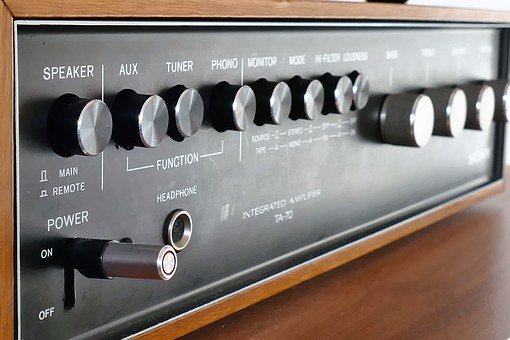
篇1:中考英语近义词辨析与技巧
中考英语近义词辨析与技巧:ago/before
Ⅰ. ago adv. “……以前”指从此刻起,若干时间以前,通常与过去连用。如:
① It happened two days ago.这件事发生在两天以前。
② I met him a few minutes ago.我在几分钟以前碰到他。
Ⅱ. before adv, prep & conj “……以前”指从那时起若干时间以前。通常与完成时、过去时等连用。还可用作前置词或连接词表时间,而 ago 则不能这样用。
① He said that he had seen her two days before.他说他两天前见到过她。(表从她说话那时起两天前)
② I had been fine the day before.(那天)前一天的天气很好。
③ I’ve seen that film before.
④ I never met him before.
篇2:中考英语近义词辨析与技巧
中考英语近义词辨析与技巧:all/ every
Ⅰ. all 和 every 意思十分相近,二者都可用来泛指人或物。但 all 可与算数的名词连用,而 every 只能与单数的名词连用。如:
① All Mondays are horrible. 星期一总是可怕的。
② Every Monday is horrible. 每个星期一都是可怕的。
Ⅱ. all 和 every 也可用来指某一类东西中的个体。但all 后跟 the 或其它“限定词”,而 every 后却不能。它往往强调无一例外的意思。
--She is eaten all the biscuits[‘biskit]. –What, every one? –Every single one! 她把饼干都吃
光了。怎么,把每一块都吃光了吗?每一块全都吃了!
Ⅲ. all 还可和单数名词连用,表示 every past of 而 every 却不能有此义。如: She was here all day. 她在这呆了一整天。
篇3:中考英语近义词辨析与技巧
中考英语近义词辨析与技巧:all/ whole
Ⅰ. 二者意义(“全部、都、整个”)相同,然而词序不同。
Ⅱ. all 用于冠词,所有格或其它“限定词”之前。 whole 则用于冠词之后。如:
① all the time. ────→the whole time.全部时间
② all my life ────→the whole life.我的一生
③ all this confusion ─→ this whole confusion.整个混乱状况。
Ⅲ. 如果没有冠词,或其它限定词,whole 不能与单数名词连用。可以说:
① The whole city was burning.但不能说: ② Whole London was burning.
Ⅳ.whole 和 all 与复数名词连用时意思不同。Whole 的意思为“全部”,而 all 的意思则近乎“每一个”如:
① All Indian tribes([traib]部首 ) suffered from white settlement in America. 所有印第安人部首都因白人移民美洲而遭殃。
② Whole Indian tribes were killed off. 有些印第安人部落整个被杀光了。
Ⅴ. whole 一般不用来修饰不可数名词(包括物质名词)
① 可以说:all the money 或 all the wine
② 不可以说:the whole money 或 the whole wine.
③ The whole of = whole 与单数名词连用。它用于冠词、所有格之前。 the whole of the time.
the whole of my life the whole of this confusion

篇4:中考英语近义词辨析与技巧
中考英语近义词辨析与技巧:after/behind
Ⅰ. after “在……(时间)之后”;
“在……(地点)之后”,指次序。如:
① He came after ten o’clock. 他十点以后来的。
② Two days after his arrival, I called on him. 在他到达两天以后,我拜访了他。
③ ‘Against’ comes after ‘again’ in this cictionary.在这本字典中 ‘against’ 排在 ‘again’ 之后。
Ⅱ. behind 表地点时意为:在……后面、着重指位置的前后。偶尔也指时间,表按照一定的时刻而迟了的意思。
① The garden is behind the house.
② He stood behind me.
③ The train was behind time. 火车误点了。
篇5:中考英语近义词辨析与技巧
中考英语近义词辨析与技巧: aim/ purpose/ object
Ⅰ. aim “目的”指抱有一种明确的目的,并意味着为之实现而竭尽全力。如:
① What’s your aim in life?你的人生目的是什么?
② The ultimate aim of the Party is the realization of communism.党的最终目的是实现共产主义。
Ⅱ. purpose “目的”指心中有打算,并意味着对所作的打算有较大的决心。如:
① It was done with a definite purpose. 做这件事具有一个明确的目的。
② For what purpose (purposes) do you want to go to Canada? 你要去加拿大的目的何在?
Ⅲ. object “目的” 含有比较具体的意味。往往指在我们的行为中,需要或希望直接达到的目的。如:
① The object of my visit is to consult you. 我访问的目的是来和你商量。
② What is your object in studying English? 你学英文的目的 何在?
[注]:以上这几个词的涵义虽有差别,但在语言实践中,常被毫无区别地使用着。
篇6:中考英语近义词辨析与技巧
1、 表示“说”的say、speak、tell、told:
1. Uncle Wang _____ us a story last night. (1997 重庆)
A. spoke B. told C. said D. talked
2. “Can you ______ Chinese, Mr. Smith?” “Yes, but just a little.” (海淀区)
A. talk B. speak C. tell D. say
2、 表示“看”的see、watch、talk:
1、-There must be something wrong with the TV. (黑龙江)
-I’m afraid you may be right. I think we can _____ it in Uncle Wang’s home.
A. see B. look at C. watch
2、There was a strange sound outside. Mary went out and _____ around, but she _____ nothing.
A. looked, saw B. saw, saw C. watched, looked D. looked, find
3、 表示“听”的listen、hear:
1、“Now, ______ to me carefully.”said the teacher. (1997新疆)
A.look B. see C. hear D. listen
2、Young People enjoy ______ pop music. (泉州)
A. listen to B. to listen to C. hearing D. listening to
4、 表示“拿”的bring、take、carry、hold:
1、 Trucks _______ all kinds of goods here and there. (1997上海)
A. carry B. take C. bring D. hold
2、 -Will you show us the photos?
-OK. I’ll _____ them here tomorrow. (宁波)
A. take B. carry C. bring D. get
5、 表示“到达”的reach、 arrive、 get:
1、 When they _____ at the village, it was already eleven o’clock. (1997天津)
A. arrived B. reached C. got D. came
2、 Please write to me as soon as you ______ Shanghai. (天津)
A. arrive B. reach C. got to D. come
3、 All the teachers and students were tired when they _____ the top of the mountain.
A. got B. arrived C. climbed D. reached (1999武汉)
6、 表示“借”的borrow、lend、keep:
1、 Will you _____ me your pencil? Mine is broken. (1996成都)
A. borrow B. lend C. take
2、 -How long can the book _____, Miss Gao?
-For two weeks, I think. (宁波)
A. borrow B. be borrowed C. keep D. be kept
7、no one none nothing
1. ______ knows what has happened to him. ____ of us has seen him.
2. _______ likes a person with bad manners.
3. “How many birds are there in the tree?” “ ______.”
4. “Who are you speaking to?” “ ________.”
5. “What’s in the box?” “ ________.”
6. _________ of the fruit is delicious.
7. Will you give me some water? There is _____ in the cup.
8、so such #p#分页标题#e#
1. This book is ___interesting that I have read it twice.
2. Don’t be in ____ a hurry.
3. He is ____ a kind person that we all like him.
4. I hope never to have another _____ experience.
5. There are no _______ words as those in the dictionary.
6. This is ____ expensive a car that I can’t afford it.(改写)
9、very quite much rather
1. This room is ______ clean. 2. It takes _____ a long time.
3. It takes a _____ long time.
4. I ______ agree with you. 5. I’m ____ sorry to hear that.
7. Math is _______ too difficult to me.
8. It is ______ colder today than yesterday.
9. I don’t like football ______.
10. Eating too ______ sugar is bad for your teeth.
10、leave away
1. The train ______ five minutes ago.
2. The train has ________ for five minutes.
3. How long _____ you _______ from school last term?
4. That small town is about five kilometers _____.
11、leave (left) forget
1. Sorry I _____ my homework at home
2.I ________ to bring my homework to school.
3. The woman ______ all her things in that restaurant.
12、leave stay
1. She has to go out but she can’t ______ her son by himself.
2. He is ill and he has to ______ at home.
3. There is little time _____. Hurry up!
13、in the end at the end by the end to the end
1. How many English words had you learned ____________ the end of last year?
2. They went to visit the museum _____________ the end of last month.
3. Go up this road _______________ the end.
4. ________________ the end of the road you’ll find the hospital.
5. He tried many ways of making money and ____________________ the end he
became a businessman.
6. The war lasted four years. ____ the end the North won.
7. We will have graduated from junior middle school ___________ the end of this June.
14、marry get married be married
1. She _______ a man with a lot of money. 2. A famous football player ___________ her.
3. Tom and Mary _____ last year. 4. Tom and Mary has ___________ for a year.
5*Tom has been married _____ Mary for a year.
15、 a number of the number of
1. number of pages in this book ________ (be) two hundred.
2. number of students _______ gone to watch traffic.
3. There are number of people over there, watching the traffic accident.
4. Which language is spoken by the number of people in the world? (最多) #p#分页标题#e#
16、make somebody do something be made to do something
1. The tiger made one of the smaller animals (bring)food to him.
2. He often tells jokes to make people (laugh).
3. The boss made the workers (work) fourteen hours a day.
4. The workers were made (work) fourteen hours a day.
17、mean to do mean doing
1. I didn’t mean ______ (quarrel) with you.
2.Love means _________ (give).
3. I really mean _____ (do) it. It is important for me.
4.Being lazy means _______ (fall) behind others.
18、few a few little a little
1. Is there any milk in the bottle? Yes, there is __________.
2. Sorry I can’t answer your question. I know ____ about this subject.
3. That film is not interesting, so _______ people like it.
4. Do you speak Japanese? Yes, but only ________.
5. I’ve studied Japanese for only _________ months.
6. Tom was ill yesterday, but he feels _____ better now.
7. All the students are busy, so ____ of them will go to the cinema.
8. Mr. White is very lonely. He has ______ friends. But he likes dogs
and he has ____in his house. He says his dogs eat much and drink __.
9. He is a man of _______ words, that is, he talks little.
#p#分页标题#e#
10. In the past ____ years, there have been a lot changes in my hometown.
11* There is ______ milk in this glass than in that one.
12* I picked _____ apples than you. But mine is better than yours.
19、another the other other others
1. I don’t like this one. Will you show me ______ one?
2. All her ________ friends are waiting outside the door.
3. There are three books on the desk. One is mine, ___ two are yours.
4. Would you like _____ piece of cake?
5. The post office is on ________ side of the street.
6. He will stay there for ______ three days and come back next Monday.
7. There are many visitors in the park. Some are riding camels,
_________ are taking photos.
8. Many students are in the classroom. Some are cleaning the windows,
_______ are sweeping the floor.
9. You mustn’t lend this book to ______. You can read it yourself.
10. We had fish, chicken, seafood and some ____ delicious food for dinner.
11. ____ three bottles of beer, please. Three ____ bottles of beer, please.
20、in front of in the front of in front
1. The teacher is standing ___________ the classroom, giving a lesson to us.
2. A lot of cars are parking ____ the school when there is a parents meeting.
3. Six students are standing ___________ the class.
4. The driver was driving ____ the bus when he saw a cow __ the bus.
5. There is a tall tree ___________ the house.
6. On the first lap, Class 3 is _____________.
21、in the evening on the evening
1. We usually do our homework _____ the evening.
2. _____ the evening of October 5 th, I saw a car run into the river.
3. _____ a summer evening when he was on his way home, a big dog
was following him.
4. This story happened _____ a cold evening of January 1999.
22、mustn’t needn’t don’t need don’t have to
won’t have to doesn’t have to
1. You ___ take this book out of the library. You can read it here.
2. Must I do my homework now? No, you _____.
3. Do I have to finish the work today? No, you _______ .
4. You must help your mother with the housework, _____ you?
5. Need you go to see a doctor? No, I ______.
6. You can go home now. You _______ to clean the classroom.
23、careful carefully care
1. You must be more ______. That car nearly hit you.
2. We must listen to the teacher ________ in class.
#p#分页标题#e#
3. She is a ______ girl and does everything ______.
4. You must take good ____ of your things. Put them away.
5. Take _____, and wish you a good journey home.
24、how long how often how soon how far how many times
1.How _______ did the film last?
2.“How _______ can you be ready?” “In a few minutes.”
2.How _______ has the film lasted?
4.How _______ do you go to the bookstore?
5. “How _______ has the train run since it left the station?”
“About fifty kilometers.”
6. “How _______ a week do you go shopping?” “Once a week.”
7. “How _______ do you go shopping?” “Once a week.”
8.How ______ will he come back? 9.How ______ can you jump?
10. “How ________ were you late for school last term?”
“ Never.” “Sometimes.”
25、take spend pay cost
1.It often _______ me a quarter of an hour to go to school by bike.
2.I often _______ a quarter of an hour ______ to school by bike.
3.It _____ them three hours to hike to the top of the mountains last month.
4.They ______ half a year ___ building the bridge last year.
5.I ___ 1000 dollars on this used car. 6.I ____ $1000 for this used car.
7.This old car ____ me 1000 dollars. 8.How much did it ______ you?
9.How long does it _______ to get to the moon by spaceship?
10.This diamond necklace _____ yuan.
11.He _______ his holiday in his hometown.
26、hope wish
1. ______ you good luck with your English. 2. _______ you success.
3.Mr Smith _______ to visit China in the future.
4.I _______ you to have a good time in America.
5.I ______ that you have a good time in America.
6.I ______ I could fly like a bird.
7.I don’t know Russian. I ______ I knew Russian now.
8.I ______ I could help you, but I’m very busy really.
27、be good at be good for be good to
1.He was very good ____ when I was ill.
2.All the teachers are good ___ us at school.
3.Sunshine is good ____ your plants.
4.Sports are good ___ our health.
5.He is good ____ playing basketball.
28、wear put on in dress dress up
1.You look beautiful _____ this dress. 2.Alice is____ her doll.
3.As soon as he received the letter, he ____ his glasses and read it.
4.Could you ______ the children for me?
5.My daughter is old enough to ______ herself.
6.After I get up, I usually get _______ quickly. #p#分页标题#e#
7.The lady _____ white teaches us physics.
8.Many girls ______ skirts in simmer time.
9.She ______ a red flower in her head.
10.When he learned the news, he quickly _______ his coat and
his hat, and then went out.
29、would like feel like be like look like
1.I feel terrible, and I don’t _________ eating anything.
2.I _________ to go to your party tomorrow, but I will be busy then.
3.Is your daughter lost? Tell me what she _______?
4.Do you know what the weather will _____ the day after tomorrow?
5.Do you __________ taking a walk with me?
6.“What ___ he ______?”“He is very kind.”
7.“What does he __________?” “He is young, handsome and strong.”
8. I __________ you to come to my home for dinner this evening.

篇7:中考英语近义词辨析与技巧
中考英语近义词辨析与技巧:affair/matter/business
Ⅰ. affair “事、事情、事务”它的涵义最广,可指已经发生或必须做的任何事情, 也可泛
指事务(通常用算数,指重大或头绪较多的事务)。如:
① The railway accident was a terrible affair. 那次火车事故是件可怕的事。
② That’s my affair, not yours. 那是我的事, 不是你的。
③ We should concern ourselves with state affairs. 我们要关心国家大事。
Ⅱ. matter“事、事情” 是普通用语,常指我们所写到或谈到的事情,要考虑和处理的事情。如:
① This is a matter I know little about. 这件事我不大知道。
② I’ll ask some one about the matter.关于这件事我将去问问人。
③ There are several matters to be considered. 有几件事情要考虑。
[注]:在口语中,be the matter 相当于 be wrong, 表发生了失常的事或出了毛病等意思。如:
① What’s the matter? 怎么啦?
② What’s the matter with you? 你怎么啦?
Ⅲ. business“生意、商业”产普通用语。它表“事情、事务”时,往往指一种任务、责任或必须去做的事。此外, 它有时还含有轻蔑的意味。如:
① We don’t do much business with them. 我们跟他们没有多少生意来往。
② It is a teacher’s business to help his pupils. 帮助学生是教师的责任。
③ He made it his business to fetch water for a granny. 他把为一位老大娘挑水当作自己的事。
④ It’s not your business.这不是你的事。
篇8:中考英语近义词辨析与技巧
中考英语近义词辨析与技巧: afraid/ fear/ frightened
Ⅰ. afraid “害怕”是形容词,只能作表语,而不能作定语,后接 of 短语或不定式,构成 be afraid of sb. 和 be afraid to do sth
① She is afraid of a snake. 她害怕蛇。
② The little girl is afraid to go out at night.
afraid +that clause “恐怕”, 是婉转拒绝别人的一种表达方式。 如:
① I’m afraid (that) I can’t go to the party. My brother is sick. 恐怕我不能去参加聚会了。我弟弟病了。
Ⅱ. fear “害怕”是动词,与 be afraid 往往通用,但不如它常用(特别是在口语中)。如:
① We fear no difficulty.我们不怕困难。
② He feared to speak his mind.他不敢说出自己的想法。
③ Fearing that he would catch cold, I went out to see him.因为怕他会受凉,我走去看他。
Ⅲ. frightened adj “受惊吓的、害怕的”可做表语,也可作定语。如:
① She is too frightened to move.她太害怕了不能动弹。
② A frightened girl is crying. 一个受惊的女孩正在哭。
篇9:中考英语近义词辨析与技巧
中考英语近义词辨析与技巧: allow/ permit/ let/ promise
Ⅰ. allow“允许、许可”,一般指听任,或默许某人去做什么,含有消极地不反对的意味。如:
We allowed him to depart.我们允许他离去。
Who allowed you to leave the camp?谁允许你离开营地的?
I can’t allow you to do that.我不能允许你做那件事。 allow 也可表客气的请求。如
Will you allow me to use your pen?我可以用你的钢笔吗?
Ⅱ. permit “允许、许可”但是正式地许可,含有比较积极地同意某人去做什么的意味。如:
I will permit him to do so. 我准备同意他这样做。
The sentinel permitted the strangers to pass when they had given the countersign.当这群陌生人说出口令后,哨兵就允许他们通过了。
[注]:allow 与 permit 的涵义虽有差别,但在语言实践中,它们常常被通用着。如:
① Smoking is not allowed here.此处禁止吸烟。
② Smoking is not permitted in this theatre. 本戏院里禁止吸烟
Ⅲ. let.“允许、让”它可以指积极地允许,但更 多的是着重指不予反对和阻止其后所跟的宾语要接不带 to 的不定式用以表示客气的请求时,可与 allow 通用。且更具有口语色彩。如:
Her father will not let her go.她父亲不会让她去。
Don’t let this happen again. 不要让这种事发生了。
Please let me know what happens.请告诉我发生些什么事。
Ⅳ. promise “答应” “允诺”。与以上三个词的意义不同,用于主体答应自己要作什么的场合。
如:
He promised to begin at once.他答应立刻开始。
I promised (him) to attend to the matter promptly. 我答应(他)立即处理这件事。
They promised an immediate reply.他们答应立即答复。

篇10:中考英语近义词辨析与技巧
中考英语近义词辨析与技巧:agree to/ agree with/ agree on(up on)
Ⅰ. agree to “同意、应允”通常用于同意某件事情(我们可以同意我们自己有不同看法而并不赞同的事情)。如:
① Do you agree to this plan?
② He agreed to my proposal.他同意了我的提议。
③ I agreed to his terms. 我同意了他的条件。
Ⅱ. agree with “同意、赞同”常常表示同某人意见一致,也可表赞同某件事情。还有“(气
候、食物等)适合”之意。如:
① I quite agree with you.我很同意你。
② Do you agree with me ?
③ I agree with all you say.我同意你所说的。
④ His words do not agree with his actions.他言行不一致。
⑤ Too much meat doesn’t agree with her. 吃太多肉对她身体不合适
[注]:agree with 不能用于被动语态。
Ⅲ. agree on /upon “对……取得一致意见”指两方或多方就某个问题取得了一致的意见或
达成了某种协议。如:
① After discussion the two sides agreed on a cease-fire. 经过讨论,双方就停火问题达成了协议。
② They all agree on the plan.他们对这个计划意见一致。
[注]:此句型可转换成 agree in doing sth.如:
① All of them agreed on / upon it. = All of them agreed in doing it. 他们对做这个问题达成了共识。
篇11:中考英语近义词辨析与技巧
中考英语近义词辨析与技巧:alive/ living/ the living/ live/ dead
Ⅰ. alive adj“活着的”“在世的”,它既可修饰人也可修饰物。可作表语,定语。作定语时,
应放在被修饰的名词之后。如:
① They were alive and as happy as ever. 他们都还活着,并跟以前一样快活。
② All the other comrades were killed in the battle. He was the only man alive. 所有的同志都还活着亡了,他是唯一的幸存者。
Ⅱ.living adj,“活着的”主要用着定语,常置于名词前,有时也可置于名词后。也可作表语。
如:
① Every living person has a name. 每个活着的人都有一个名字。 ② No man living could do better. 当代人没有一个能做得比这更好。 Ⅲ. the living “活着的人”如:
The living are more important to us than the dead. 对我们来说活着的人比死了的人更重要。
Ⅳ. live adj. “活着的”读着[laiv],反义词为 dead, 可作定语,放在所修饰的名词之前,一般不用来修饰人。 还可以作动词,读着[liv], 意为“生活”、“生存”如:
① The cat was playing with a live mouse. 这只猫在玩弄一只活老鼠。
② Pandas usually live in the south and the southeast of China. 熊猫通常生活在中国的南部和东南部。
Ⅴ. lively adj. [‘laivli](livelier, liveliest) “生动的”;“活泼的”;“充满生气的”用作表语或
定语,可用来修饰人或物。如:
The sports ground is lively with all sorts of ball games. 运动场上进行着各种球类比赛,呈现出一派生气勃勃的景象。
篇12:中考英语近义词辨析与技巧
中考英语近义词辨析与技巧:at times / at all times / all the time
Ⅰ. at times “不时;偶尔”如:
① The tide is , at times, very high. 潮水有时涨得高。
② I make mistakes at times when I speak English. 我说英语偶尔会出错。 Ⅱ. at all times.“随时;任何时候;总是” 如:
He has a cool head at all times. 他随时都有清醒的头脑。
Ⅲ. all the time “一直;始终” 其中 time 用单数形式。如:
The baby cries all the time. 那婴儿一直哭。